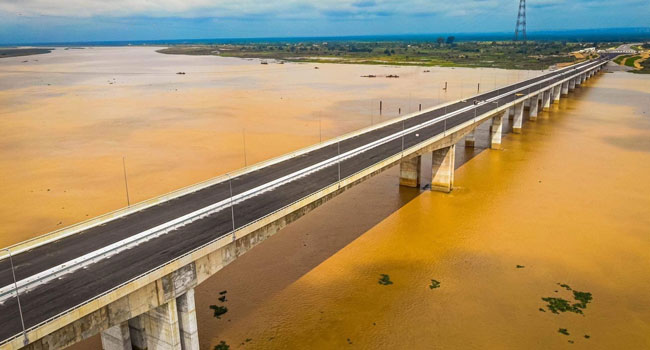The Minister of Works, Dave Umahi, has announced that the Federal Government plans to implement tolls on all major roads in Nigeria once construction and renovations are completed.
“We are finishing the Lagos-Ibadan Expressway, and we will be tolling it,” Umahi said during an Inter-Ministerial Press Briefing in Abuja, part of the events commemorating Nigeria’s 64th independence anniversary.
He highlighted several key roads, including the Lagos-Ibadan Expressway, the Second Niger Bridge, the Abuja-Kano Road, and the Makurdi-9th Mile Road, among others. According to the former governor of Ebonyi State, tolling these federal roads will generate significant revenue for the government.
Umahi also mentioned that the private sector has been involved to provide funding for road construction, working in collaboration with the Infrastructure Concession Regulatory Commission and the Ministry of Works to establish toll systems.
The minister noted that the government will begin tolling with the Keffi-Makurdi Road, which is already completed, and discussions with the Ministry of Finance are ongoing to introduce a paperless payment system for tolls.
“We are completing the Lagos-Ibadan Expressway, working on the Makurdi-9th Mile Road in Enugu State, and the Abuja-Lagos corridor. These roads will be tolled. But we are not just tolling them; we are also enhancing security, with a response time of 10 minutes along the entire route, installing permanent solar lighting, and reducing travel time. Through tolling, the roads will be maintained, and Nigerians will be willing to pay if the roads are in good condition,” he explained.
Umahi emphasized that previous road projects were not approached as investments, but under President Bola Tinubu’s administration, road development is being managed more professionally. He further revealed that the government inherited over 300 damaged roads and bridges, with new construction projects set to begin across all six geopolitical zones from October 1, 2024.



